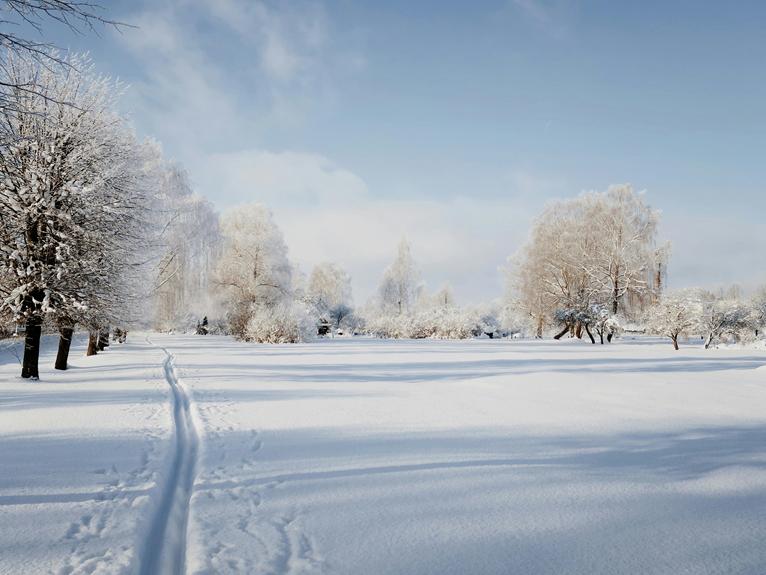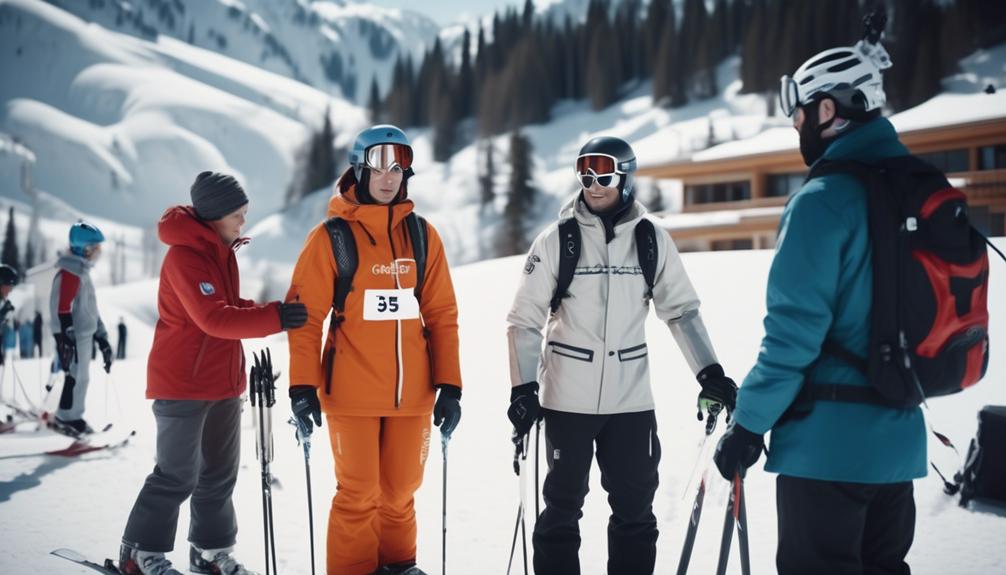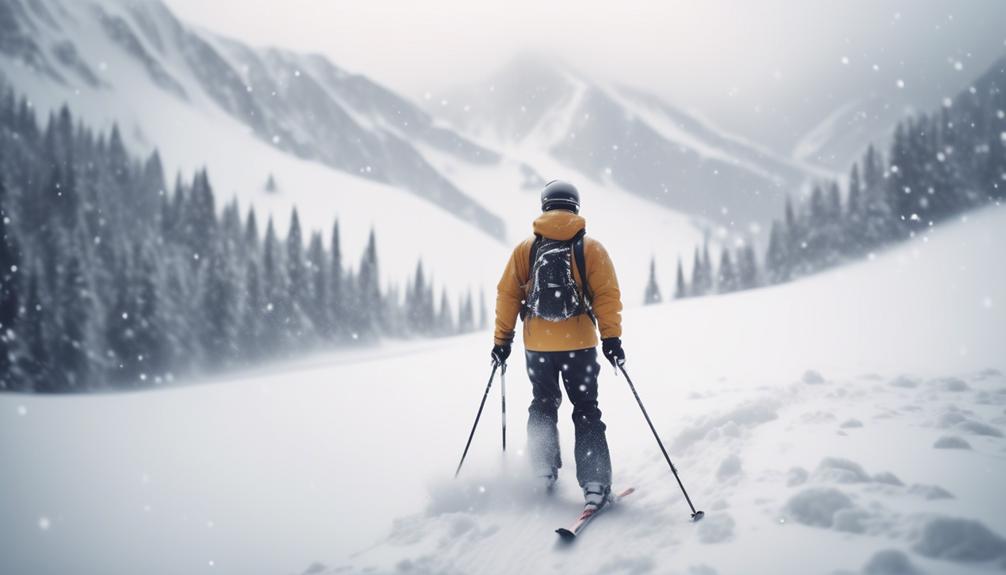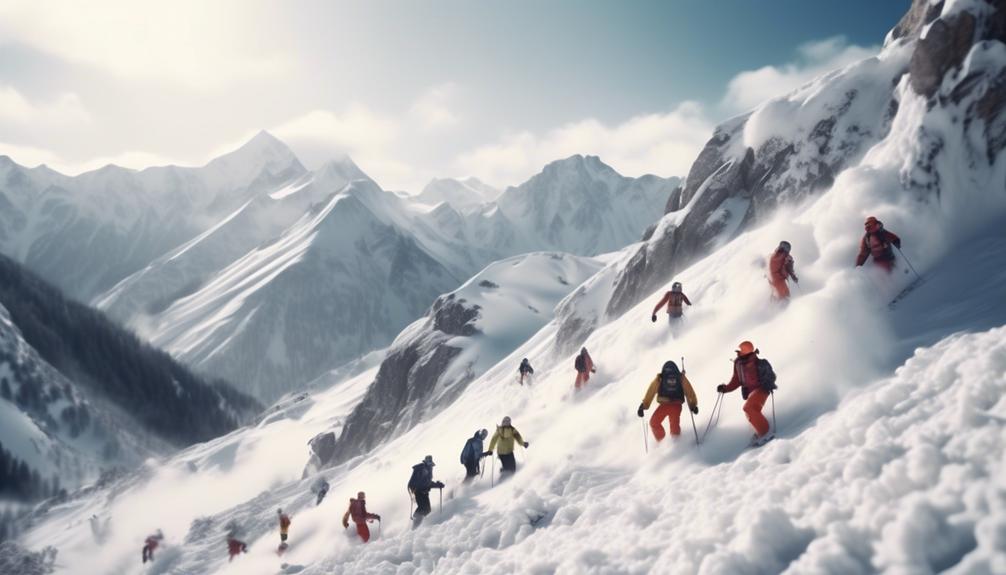What Does Your Ski Trip Insurance Really Cover?

Hitting the slopes this winter? Ah, skiing – that thrilling dance with gravity and snow, where each turn is a brush with exhilaration and, let's be honest, a tad bit of danger.
Now, while you're daydreaming about that perfect powder, there's something less exciting but super important to chat about – ski trip insurance. Yep, it's not just a boring adult thing; it's your secret weapon against the unpredictable.
But what's under the hood of this safety net? It's not all about saving your bones from a gnarly wipeout (although, very crucial); it's like the Swiss Army knife of travel protection. From mischievous snow goblins stealing your gear, to those pesky medical mishaps, and even the dreaded trip cancellations – ski trip insurance has got your back.
And oh, let's not forget the capricious weather gods deciding to throw a tantrum. But wait, there's more! Let's dive into the frosty depths of ski trip insurance and uncover the hidden treasures that await. Ready to become the savvy skier who knows their insurance perks like the back of their mittened hand?
What's your biggest winter adventure fear? Slide into the comments and spill the icy beans! ❄️
Coverage for Ski-Related Injuries
Securing insurance for your ski trip is a smart move, especially considering the risks involved in skiing and snowboarding. These sports offer a lot of fun but accidents can happen, making it vital to have a policy that covers injuries you might sustain on the slopes.
Most ski trip insurance plans will help with the costs incurred from injuries, including ambulance services, hospital stays, surgical procedures, and any necessary treatments afterward. However, it's wise to go through your policy carefully. Some policies might not cover incidents if they were a result of skiing while intoxicated, taking part in dangerous or off-trail skiing, or if the injury results from reckless actions. Additionally, injuries from participation in official races or contests might not be covered.
Exclusions are a part of many insurance policies, so understanding them is key. For instance, you might not be covered if you're injured while engaging in activities deemed as high-risk beyond traditional skiing or snowboarding.
Another significant aspect of ski trip insurance is the provision for emergency medical evacuation. This is particularly important in less accessible, mountainous regions where getting to a medical facility quickly can be challenging. Having coverage for medical evacuation means you can be transported to receive necessary medical treatment efficiently.
'Always ensure your thrill on the slopes doesn't leave you cold in the aftermath. Secure a ski trip insurance that has your back,' is a wise mantra for any winter sports enthusiast.
When considering insurance, pay attention to the coverage details, understand the exclusions, and ensure you're equipped for emergencies. A good policy not only offers peace of mind but also ensures that your focus remains on enjoying the slopes safely.
Protection for Equipment Loss or Damage
Choosing a comprehensive ski trip insurance plan is not just about safeguarding yourself against injuries on the slopes; it also offers peace of mind regarding your skiing equipment.
No one wants to fret over lost or damaged gear during their vacation. Whether you're dealing with skis, snowboards, or other essential items, footing the bill for repairs or replacements can put a damper on your holiday spirit. This is where the right insurance policy becomes valuable.
Most insurance policies tailored for ski trips cover the costs for replacing your equipment if it gets lost or damaged. This means if your gear gets stolen or irreparably harmed, you're not left out of pocket. The insurance steps in to provide a replacement of a similar quality. It's vital, however, to thoroughly review your policy to grasp the coverage scope and any specific exclusions that might be in place.
Protection against theft is another benefit typically included in ski trip insurance plans. If your gear is stolen while you're hitting the slopes or back at your lodging, you'll receive compensation based on the value of the stolen items. Verification of the policy's details to understand the extent of coverage and the process for reporting theft is a smart move.
'Ensuring your ski equipment is protected allows you to fully immerse in the joy of the slopes without the shadow of worry,' highlights a seasoned ski trip advisor.
Emergency Medical Expenses Coverage

To make sure you're fully protected during your ski vacation, adding emergency medical expenses coverage to your insurance plan is a smart move. Skiing can sometimes lead to unexpected accidents, and the bills for medical care can quickly pile up. With emergency medical expenses coverage, you'll have the financial security you need in case of a health crisis.
When you're getting insurance for your ski vacation, don't forget to check if it includes emergency medical evacuation. This coverage helps with the costs of getting you to the nearest hospital that can provide the necessary care. It might also cover bringing you back home if you're seriously ill or injured.
Another key point to consider is coverage for evacuation from the ski resort in emergencies like avalanches or extreme weather. This can offer financial relief if you have to leave the resort suddenly due to natural disasters.
Always take a close look at your insurance policy's details to know exactly what's covered under emergency medical expenses. You'll want to ensure the coverage limits are high enough to handle any medical bills, including any deductibles or co-pays.
'Securing the right insurance is like packing an extra layer for the slopes – you hope not to need it, but you'll be glad it's there if you do.'
Keep your writing clear, engaging, and to the point. Avoid complex jargon and make sure your readers can easily grasp the importance of having comprehensive coverage for any potential mishaps on their ski trips. By providing thorough explanations and keeping the conversation light, you'll help them see the value in a well-chosen insurance policy.
Trip Cancellation and Interruption Coverage
Given the unpredictable nature of events that might interfere with your ski trip, securing trip cancellation and interruption coverage is a smart move. This type of insurance offers financial safeguarding should your trip face cancellation or disruption due to a variety of reasons.
Trip cancellation coverage ensures you get back the non-refundable expenses if unforeseen circumstances such as sickness, injury, or a family member's death prevent you from going on your ski trip. It also shields you from losses due to other unexpected situations like natural disasters or terrorist incidents, making sure the money you invested in your trip isn't wasted.
Travel interruption coverage comes into play if your trip is unexpectedly cut short or disrupted for covered reasons. This can include compensation for the part of your trip you couldn't enjoy, such as transport, lodging, and prepaid events. Reasons that might trigger this coverage include medical emergencies, extreme weather, or sudden unemployment.
When choosing ski trip cancellation and travel interruption coverage, it's vital to scrutinize the policy details. Insurance providers vary in terms of what they cover, their limits, and what they exclude. Getting this insurance promptly after booking your trip is wise to ensure you're covered for any mishaps that could occur before or during your journey.
'Protecting your ski adventure from the unpredictable ensures peace of mind and safeguards your investment,' as observed by many seasoned travelers.
Coverage for Weather-Related Issues

Bad weather can seriously disrupt your ski trip, but opting for insurance that covers weather-related problems can safeguard your finances and give you comfort. Ski trip insurance plans often include protection against a variety of weather challenges that might occur.
Here are some significant advantages of this type of coverage:
- Compensation for travel delays: If bad weather like heavy snow or blizzards pushes back your trip, your ski trip insurance could cover extra costs that come up during the wait. This might cover expenses for staying somewhere, eating, and getting around.
- Paying back for ski lessons you miss: Should bad weather stop you from going to pre-booked ski lessons, your insurance might pay you back for them. This way, you don't miss out on the chance to improve your skills and enjoy your time on the slopes.
- Costs for emergency evacuations: If severe weather demands an urgent move from the ski resort, your insurance might handle expenses tied to getting away safely, medical help, and places to stay.
- Protection for your equipment: Your ski trip insurance might also cover your ski equipment if it gets damaged or lost because of weather events like storms or avalanches. This means you won't have to deal with unexpected costs if something happens to your gear during your trip.
'Choosing the right ski trip insurance means you're not just preparing for the unexpected—you're ensuring that no matter what the weather throws your way, you're ready to handle it with ease and enjoy your adventure to the fullest,' says a seasoned skier and travel expert.
Reimbursement for Unused Lift Tickets
When planning a ski vacation, securing travel insurance that covers ski trip expenses, including lift tickets, is a smart move. If you find yourself with lift tickets you can't use, it's worth looking into whether you can get your money back. The specifics of getting a refund for those tickets depend on the details of your insurance plan. Generally, if you're unable to hit the slopes due to unforeseen issues like sickness, injury, or extreme weather, you might be in luck and get a refund.
Checking the fine print of your insurance policy is the first step to understand what is required for a refund. If you need to make a claim, be ready to provide evidence, such as medical records or reports of bad weather. If your claim meets the criteria, you should receive a refund for your unused lift tickets, as outlined in your policy.
It's key to remember that not all insurance plans cover unused lift tickets. Hence, comparing different travel insurance options is a good strategy to ensure you pick a policy that meets your needs.
To embark on the slopes with peace of mind, ensure your travel insurance covers all aspects of your ski trip, including those valuable lift tickets.
In essence, a little homework before your trip can save you from potential headaches later on. Making sure your travel insurance has your back for unused lift tickets is just one piece of the puzzle for a stress-free ski vacation.
Coverage for Avalanche-Related Incidents

Travel insurance plans often cover incidents related to avalanches that might happen during your skiing adventures. Being equipped with the appropriate insurance can significantly aid in safeguarding your well-being and reducing any potential financial burdens. Below are crucial aspects concerning coverage for situations involving avalanches:
- Emergency Medical Evacuation: If caught in an avalanche, travel insurance usually takes care of the expenses for emergency medical evacuation. This means getting you to the closest healthcare facility that can provide the necessary medical attention.
- Search and Rescue: Expenses arising from search and rescue operations are typically covered by travel insurance. This includes deploying helicopters, skilled rescue teams, and specialized gear to find and save those caught in avalanches.
- Trip Interruption/Cancellation: Should an avalanche disrupt your ski vacation, you may get reimbursed for the parts of your trip you couldn't enjoy, like hotel stays, unused lift passes, and other prepaid costs.
- Coverage for Equipment Damage/Loss: Certain travel insurance plans also cover the repair or replacement of ski gear damaged or lost due to an avalanche. This assistance can help you return to skiing without significant delays.
While insurance offers a financial safety net in the event of an avalanche, adopting proper safety measures and learning about avalanche rescue methods are critical for your safety and that of others.
'Ensuring you have the right travel insurance is like having a silent guardian looking out for you on your skiing trips. It's about peace of mind as much as it is about financial protection.' – This quote encapsulates the essence of being prepared for avalanches with the correct insurance coverage.
Benefits for Search and Rescue Expenses
After touching on the topic of avalanches, let's dive into the realm of travel insurance and its coverage for search and rescue expenses. Engaging in winter sports such as skiing or snowboarding carries its share of risks, including accidents or losing one's way in unfamiliar areas. In these scenarios, search and rescue operations become vital to find and help those in trouble.
Most travel insurance plans offer coverage for search and rescue expenses. This is applicable when an individual is unaccounted for or needs help after an accident or sustaining an injury while engaged in insured activities. To claim these expenses, one must promptly contact their insurance provider to report the incident and receive instructions on the next steps. Be aware that there could be a cap on how much your insurer will pay for search and rescue operations.
When choosing a travel insurance policy, paying attention to the specifics of search and rescue coverage and its limits is key. It's also wise to understand any particular conditions or steps to follow to ensure you're covered for these expenses. Knowing the ins and outs of your policy's search and rescue benefits allows you to enjoy your winter sports adventure with the comfort of being protected in emergencies.
"In the midst of winter's thrill, it's the assurance of safety that brings true peace of mind. Ensure your travel insurance shields you in your daring adventures."
This overview serves as a reminder to thoroughly review and understand your travel insurance options, ensuring you're adequately prepared for any unforeseen events. Keep these tips in mind to make informed decisions and enjoy a worry-free ski vacation.
Conclusion
Wrapping it up, ski trip insurance serves as a protective layer, akin to a cozy, durable coat for your winter sports adventure. It covers a broad spectrum, including injuries, loss or damage to gear, emergency medical costs, trip cancellations and disruptions, issues caused by weather, refunds on lift tickets not used, and incidents related to avalanches. Additionally, it supports the costs associated with search and rescue operations.
Opting for ski trip insurance is a smart move to ensure your skiing journey is not just fun but also secure, offering you tranquility as you hit the slopes.
'Opt for ski trip insurance, and you're not just planning a trip; you're ensuring a stress-free adventure on the slopes.' – Custom Quote
This insurance acts as a safeguard, ensuring that unforeseen events don't derail your plans. Whether it's a sudden injury or an avalanche scare, you're covered. The peace of mind it offers allows you to fully immerse in the joy of skiing, knowing that should the unexpected happen, you won't be left in the cold.
It's about making smart choices to protect your vacation investment and ensuring that your time on the mountain is as enjoyable and worry-free as possible.